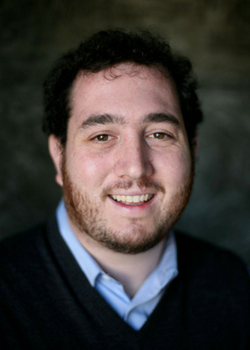Erev Yom Kippur is a special night for many reasons, one of which is that it is the only service for which nearly all Jews arrive on time. We hurry to synagogue and rush to take our seats because we don't want to miss the liturgical highlight of the year, the majestic and heartbreaking Kol Nidre chant, which must be completed in the twilight moments before the sun sets. For those magical minutes of Kol Nidre, as we are elevated from the routine sphere of our day-to-day lives to a higher spiritual plane, we sense that something solemn and awesome is taking place. We close our eyes and allow the melody to wash over us.
Yet, Kol Nidre is an unusual, and even disturbing, piece of liturgy. It is not, in fact, a prayer in the most familiar sense of the word. Rather, it is an ancient legal declaration, the intent of which is to release us from any promises or vows that we make over the course of the holiday, and even throughout the coming year. For centuries, Kol Nidre was cited by anti-Semites as proof that Jews could not be trusted - we were publicly acknowledging, they claimed, that our word is not truly our bond. However, Kol Nidre is definitively not a renunciation of oaths between human beings - we have legal formulas for mutually dissolving contracts and promises - and the words of Kol Nidre do not follow those models or accomplish that purpose.
Rather than releasing us from our promises to other people, Kol Nidre is about discharging us from the promises we have made to God. Each year, at this season, we take a hard look at our lives, and we feel the ache of the distance between the person we want to be in the world and the life that we are living. We know that we fall short in ways large and small, and we resolve to try to live better, to be better, to change. And yet, we know that old patterns are like chains, difficult to break, and that change is rarely as easy as simply deciding to act differently. We have tried before, and we have been frustrated time after time. And so we start to slowly give up, to accept what should be unacceptable, to abandon the idea that we might ever be different.
There are so many things that we never attempt because we fear failure. The power of Kol Nidre is to remove some of that fear. Kol Nidre allows us to dream big, to expand the limits of our imaginations for what is possible in our lives, because it reassures us that we are only human and God will understand if we can only achieve a fraction of that which we ultimately desire. We can try and perhaps fail, because Kol Nidre guides us to reaffirm that we are loved no matter what, that we can always try again, and that the only true sin is to despair of our capacity to change. It is as if we are saying directly to God: "I want so badly to be all that I imagine I can be, but I am scared to start. So I'm going to try my best, but God, promise me from the outset that you'll still love me if I fail."
This, of course, leaves us with a profound question: If God can have hesed, compassion, for us no matter what, can we learn to show the same compassion for ourselves and for each other. Can we give our husbands and wives, sons and daughters, friends, and companions the permission to dream big with the promise that, whether they succeed or fail, we will never stop caring for them? Can we offer a similar assurance to ourselves, an acknowledgement that we are worthy even when we fall short, and that the inability to change everything doesn't mean that we would be better off not trying to change anything.
May the words of Kol Nidre open our hearts, and may we be inscribed and sealed for a year of blessings.
G'mar chatima tova!

